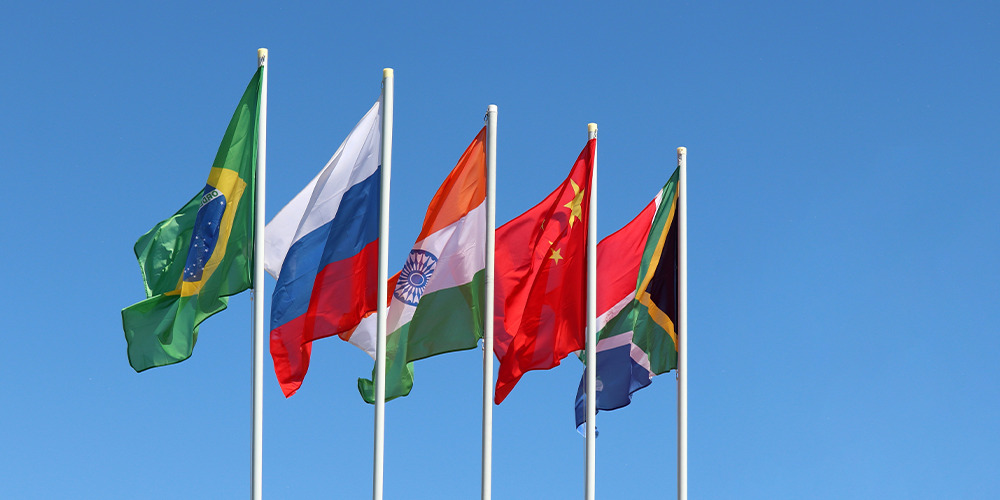Canada’s BRICS Move: A Direct Challenge to US Economic Dominance
In a geopolitical power play that's sending shockwaves through global markets, Canada just flipped the script by aligning with BRICS—taking a bold stance against US economic hegemony.
The move reeks of calculated defiance—like watching a hedge fund short the dollar while sipping maple syrup. Ottawa isn't just diversifying alliances; it's actively rewriting the rules of economic engagement.
Behind closed doors? This smells like a de-dollarization play—with Canada positioning itself as the West's unlikely Trojan horse in the multipolar world order. Gold-backed currencies anyone?
One thing's clear: When even G7 nations start hedging their bets, maybe—just maybe—the 'exorbitant privilege' of the greenback isn't so privileged anymore. Cue the Fed's existential crisis in 3...2...
Canada Should Join BRICS Amid US Tariffs And Changing Global Relations

Trump’s Escalating Trade War Pushes Canada Toward BRICS
The escalation of Canada-US tariffs has been pushing Canadian leadership toward BRICS alternatives. Trump’s decision to raise tariffs to 35% on Canadian imports has actually been met with resistance from Prime Minister Carney’s administration. This makes Canada joining BRICS discussions more urgent right now.
Prime Minister Mark Carney told reporters at a lumber mill in West Kelowna, British Columbia:
General Motors cut shifts at its Oshawa plant citing “the evolving trade environment,” while Algoma Steel began layoffs that were attributed to the tariff regime. These impacts are strengthening arguments that Canada should join BRICS for economic stability.
BRICS Expansion Creates Opening for Canada
Former Green candidate Vince Fiorito advocates that Canada should join BRICS, arguing alignment with Brazil, Russia, India, China, and South Africa could offer independence from American economic pressure. BRICS now encompasses ten members representing 46% of world population and 35.6% of global GDP.
Indonesia’s recent BRICS admission actually demonstrates BRICS’ willingness to accept diverse nations seeking Western alternatives. This precedent supports arguments for Canada joining BRICS as a viable strategic option.
The organization represents a “non-Western” rather than “anti-Western” entity, according to Shanghai Institutes for International Studies analysis. This positioning makes Canada joining BRICS more palatable for democratic nations concerned about authoritarian members.
Economic Necessity Drives Strategic Realignment
Former CIBC economist Jeff Rubin argues economic necessity will drive Canada’s decision-making regarding which countries want to join BRICS right now.
In an interview with The Tyee, Rubin stated:
Recent polling actually shows 91% of Canadians want decreased US reliance, creating political space for Canada joining BRICS initiatives. Mexico’s parallel BRICS interest demonstrates broader North American frustration with Trump’s trade policies affecting Canada-US relations.
Russia successfully pivoted to BRICS markets after Western sanctions were imposed, with energy exports reaching record highs through Chinese and Indian partnerships. This precedent suggests Canada should join BRICS to access alternative markets when traditional partnerships fail.
As Canada US tariffs continue escalating and which countries want to join BRICS expands, Canada’s potential membership represents a seismic shift in global alignment away from American economic dominance.

